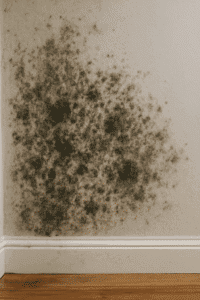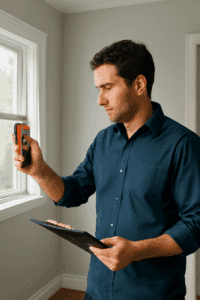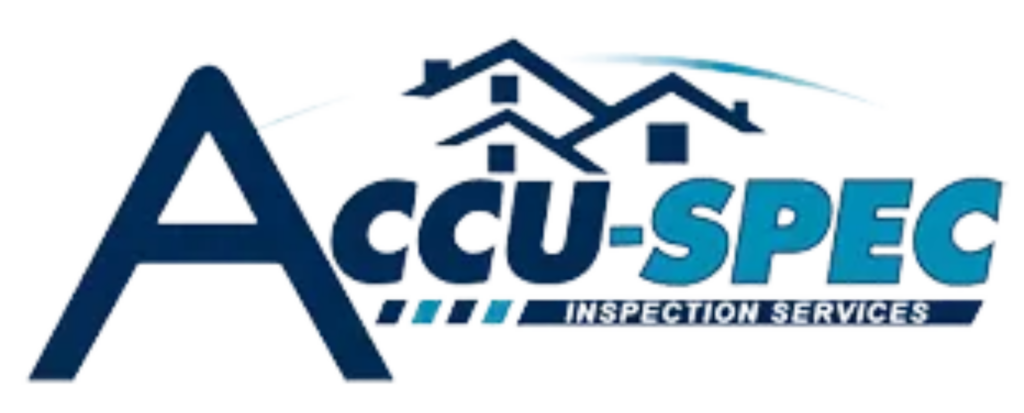Updated: October 25, 2025
 Protect Your Home and Health with Expert Mold Testing
Protect Your Home and Health with Expert Mold Testing
If you suspect mold in your home or business, it’s crucial to act quickly. Mold isn’t just an eyesore—it can pose serious health risks to your family and damage your property’s structure. At Accu-Spec Inspection Services, we provide reliable Mold Testing in Sevierville, Pigeon Forge, Knoxville, and Gatlinburg, TN, using advanced technology to detect and identify harmful mold spores before they spread.
“A mold test is one of the most important parts of a thorough home inspection. You can’t always see or smell mold, but it can seriously impact both the structure of the home and the health of the people living in it. Testing gives buyers and homeowners peace of mind—knowing their home is safe, dry, and healthy.”
— Tom Maides, Owner, Accu-Spec Inspection Services
Why Mold Testing Matters
Mold can grow unnoticed in damp or poorly ventilated spaces. Early detection helps protect your health and prevents expensive repairs. Here’s why homeowners across East Tennessee trust Accu-Spec for mold testing:
Comprehensive Inspections: We conduct both air and surface testing to identify visible and hidden mold.
Certified Inspectors: Our experienced professionals can identify mold growth even when it’s not visible.
Advanced Technology: We use high-precision tools to measure indoor air quality and detect contamination.
Detailed Reporting: You’ll receive a clear, easy-to-understand report with lab results and remediation recommendations.
Our Mold Testing Process
Step 1: Initial Consultation & Property Assessment
We begin by discussing your concerns and assessing the condition of your property. Our team will ask questions about moisture sources, ventilation issues, and any noticeable signs of mold growth.
Step 2: Mold Air Sampling
Our technicians will take air samples from different parts of your property to measure the concentration of mold spores in the air. This is especially useful if the mold is hidden behind walls or under flooring.
Step 3: Surface Testing
We will collect samples from surfaces that may harbor mold, including walls, ceilings, and floors, to detect visible mold growth or contamination.
Step 4: Lab Analysis
Samples will be sent to an accredited lab for analysis. The results will tell us what type of mold is present and its concentration levels.
Step 5: Comprehensive Report
Once the results are in, you’ll receive a detailed report with all of the findings and the next steps in addressing any mold concerns. We will explain the necessary actions for mold remediation and how to prevent future issues.
Benefits Of Professional Mold Testing
Health Protection: Detect allergens and toxic mold types that can trigger asthma or respiratory issues.
- Health Protection: Detect allergens and toxic mold types that can trigger asthma or respiratory issues.
- Prevent Structural Damage: Identify moisture and mold before they cause long-term damage to your property.
Peace of Mind: Know your home or business is safe, clean, and healthy.
Common Areas For Mold Growth In Sevierville, TN Homes
 Mold thrives in moisture-heavy spaces such as:
Mold thrives in moisture-heavy spaces such as:
Basements: The damp environment makes basements prime candidates for mold.
Attics: Poor ventilation and leaks can lead to mold growth in the attic.
Bathrooms: Frequent moisture from showers and baths can cause mold to develop on walls and ceilings.
Kitchens: Leaky pipes or appliances can lead to mold growth behind cabinets and under sinks.
For more information on the potential health risks associated with mold, visit the CDC’s guidelines on mold.
Service Areas
In addition to Sevierville, TN, we proudly provide Mold Testing in Gatlinburg, Pigeon Forge, Knoxville, and the surrounding areas.
Mold Testing in Pigeon Forge, TN
Mold Testing in Gatlinburg, TN
Mold Testing in Knoxville, TN
Mold Testing in Sevierville, TN
Don’t wait until mold becomes a major problem—take action today to protect your property and your health. Contact us to schedule your mold testing in Sevierville, TN.
📞 Call now at 865-658-1050
🌐 Visit our website to learn more or schedule your inspection today!




